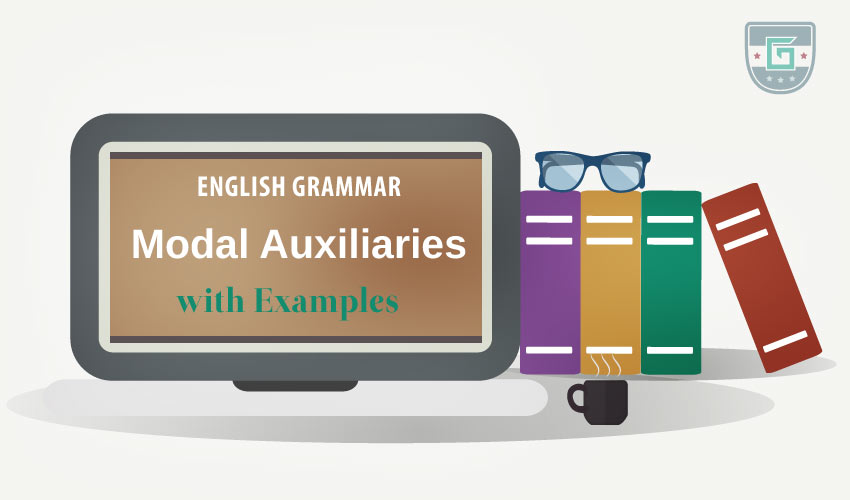Modal Auxiliaries

Modal verbs are a kind of auxiliary verb. They facilitate the main verb for suggesting potential, expectation, permission, ability, possibility, and obligation.
When used with the main verb, modal verbs do not end with -s for the third-person singular. Modal auxiliary verbs never change form, but they have a different form for past tense.
The modal auxiliaries include:
| Present Tense | Past Tense |
|
Will Can Must (have to) May Should (ought to) (had better) |
Would (used to) Could (Had to) Might Should (ought to) |
NB: The words in parentheses ( ) are semi-modals. They have the same meaning, but they are different grammatically.
Will – Would
Will indicates a ‘willingness’ to do something in the future. The negative form of will – will not (won’t) indicates an ‘unwillingness’ (refusal, reluctance) to do something.
Example:
- I will give you another opportunity.
- I will play tomorrow.
- They will arrive at 10 AM.
- She won’t come today.
Would indicates general or repeated willingness in the past. It also indicates preference in the present.
Example:
- If you did not leave, I would still be taking care of you.
- Whenever I had to go there, they would throw a party.
- We thought that people would buy this book.
- If I were you, I would not do it.
- I would like to make a toast.
Used to sometimes replaces would but sometimes it would be grammatically incorrect if we use used to in place of would.
Example:
- When I was in school, I used to make sketches.
- He often used to cry at night without reason.
- I used to take a break at this time of the year.
Can – Could – May – Might
These modals express possibility and ability.
Can indicates ability. Could indicates ability with an option.
Example:
- I can do it. (The subject ‘I’ is sure about his/her ability)
- I could do it. (The subject ‘I’ is not sure about his/her ability)
- They cannot do it. (present)
- They could not do it. (past)
Can & could also indicate possibility.
Example:
- The temperature can rise this month.
- They can’t go too far by now.
- It could rain later.
May and might both indicate possibility but might can suggest that there is less possibility than may.
Example:
- It may rain later.
- It might rain later.
- They may come back.
- They might come back.
Must
Must indicates necessity.
Example:
- I must leave now.
- He must study hard.
- Alex must go home by 6.00 pm.
Have to has the similar meaning to must but implies less urgency.
Example:
- I have to leave now.
- He has to study hard.
- Alex has to go by 6.00 pm.
- I had to leave then. (past)
- He had to study hard to pass the exam. (past)
Should
Should indicates obligation and probability.
Example:
- You should come home early.
- You should not smoke at all.
- I should visit my parents more often.
- There should be an extra key for the lock in the drawer. (probability)
- He should have reached by now. (probability)
- I should have done that. (obligation in the past)
Ought to and had better sometimes replaces should.
Example:
- You ought to come home early.
- We ought to have taken a taxi. (Past)
- We had better leave. (Had better is generally used in spoken English.)
- I think parents ought to give children more freedom. (Had better won’t be appropriate here.
Grammar
Read More
- How to Use "Therefore" in Sentences Avoiding Common Mistakes
- How to Use "Whereas" with Examples and Avoid Common Mistakes
- When and How to Use "Thus" Correctly Without Common Mistakes
- How to Use "On the Contrary" Properly with Meaning and Examples
- When and How to Use "Either/Or" with Examples and Common Mistakes to Avoid
- How to Use "On the Other Hand" Effectively without Mistakes
- How to Use "Respectively" with Example and Common Errors to Avoid
- How and When to Use "Moreover" Without Mistakes
- How to Use "Likewise" in Sentences Based on Context & When not to Use
- When & How to Use "Although" in Sentences to Avoid Mistake
